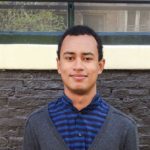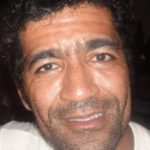
Alex Pauvolid
Veterinarian, specialist in Medical Entomology, Master in Parasitary Biology and PhD in Tropical Medicine from Fiocruz, with a sandwich doctorate and postdoctoral degree from the Arbovirus Disease Branch of the United States Centers for Disease Control and Prevention (CDC). He currently works as a collaborator at the Oswaldo Cruz Institute and as the coordinator in Brazil of an ecological study of the Zika virus in South America at CDC.

Allison Fabri
PhD Student in Genetics in the Federal University of Rio de Janeiro, Rio de Janeiro State, Brazil. He has experience in the field of Ecology and Parasitology, with emphasis in Virology, working mainly in the Laboratory Diagnosis of Flavivirus (Molecular Biology-PCR, Isolation / Immunofluorescence, Neutralization-PRNT and Serology).

Álvaro Salgado
PhD Student in Bioinformatics at Universidade Federal de Minas Gerais, Brazil. His research interests are on the development and application of interpretable Machine Learning approaches to biological investigation. His present work involves the analysis of arbovirus genome databases, together with its related metadata, in search for genomic loci possibly associated with particular phenotypes as well as disease outcomes.

Ana Maria Bispo de Filippis
Head of the Flavivirus Lab from the Oswaldo Cruz Institute, Brazil. She has been working in various research topics within the areas of surveillance and molecular epidemiology of Poliovirus and others Enterovirus, yellow fever virus, dengue and other arbovirus. Her Lab collaborates with Institutes from Brazil, Europe and United States. She is a permanent consultant for the Brazilian Health Department, Regional and Municipal Health Secretariat, OPAS/WHO.

Esther Sabino
Professor at the Medical School of the University of São Paulo (USP) and Director of the Institute of Tropical Medicine from USP. Coordinates the FAPESP project "A Translational Study for the Identification, Characterization and Validation of Severity Biomarkers in Arboviral Infections". She is a researcher of the "Recipient Epidemiology and Donor Evaluation Study-III" and the "São Paulo - Minas Gerais Neglected Tropical Disease Research Center for Biomarker Discovery".

Ingra Morales Claro
PhD student from the Instituto de Medicina Tropical Sao Paulo State Brazil. She has experience in Genetics, and NGS sequencing, working on the development of a new protocol for arboviral rapid detection using nanopore sequencing.

Jaqueline Goes de Jesus
Professor from the Bahia School of Medicine and Public Health in Salvador, Bahia, Brazil. PhD in Human and Experimental Pathology from the Federal University of Bahia. My research focus on the field of emerging arboviruses ZIKV, DENV, CHIKV, YFV, ORV and MAYV. I am a member of the ZIBRA Consortium and I have participated in ZIBRA project - Zika in Brazil Real Time Analyzes (http://www.zibraproject.org/).

Joilson Xavier
PhD Student in Genetics at the Federal University of Minas Gerais, Brazil. He has experience with molecular techniques for diagnostics, nanopore sequencing of arboviruses and time-scaled phylogenetics. He has been working on the ZIBRA project contributing to the arboviruses surveillance efforts in Brazil.

José Lourenço
A Research Departmental Lecturer in Infectious Disease at the University of Oxford. His current research is focused on viruses such as HIV, FluA, and HBV. He has recently started to work in the population biology of Streptococcus bacterium species. His research interests are on the biological determinants of the population dynamics and genetics of multi-strain pathogens (ex. ecological, demographic, evolutionary, etc).

Joshua Quick
Postdoctoral researcher at the Nicholas J. Loman's Lab, England. He traveled to Guinea in West Africa to establish the first mobile laboratory to perform viral surveillance during the Ebola virus epidemic. He also developed methods for sequencing low-titre viruses from clinical samples which have been widely for Zika virus in the outbreak in Brazil.

Luiz Carlos Junior Alcantara
Senior Researcher at the Oswaldo Cruz Foundation (FIOCRUZ). Working mainly on the following topics: Genomic surveillance, molecular epidemiology and evolution of viruses Human polymorphisms in human virus host genes, Clinical-epidemiological correlations in human viruses, Development of new bioinformatics tools for the study of human / host virus genes. Coordinator of the ZiBRA-2 project aiming to improve the real time genomic surveillance of arboviruses circulating and co-circulating in Brazil.

Marta Giovanetti
She has worked in various research topics within the areas of surveillance and molecular epidemiology of different viruses such as Ebola, Zika, yellow fever, dengue, Chikungunya and other arboviruses. She is particularly interested in methods of phylogenetic analysis that combine genomic, spatial and ecological information. She is currently a Post Doctoral Researcher working with the ZiBRA project (Zika in Brazil real-time analysis, www.zibraproject.org) in the Reference Laboratory of Flavivirus at the Oswaldo Cruz Foundation in Rio de Janeiro, Brazil, a project that aims to improve genomic surveillance of emergent and re-emergent RNA viruses circulating in Brazil. Her research focuses on generating complete genomes in real-time using nanopore sequencing technology, and to analyze large datasets of genetic data to gain insights into the origins and mode of spread of key viral pathogens with significant public health impact.

Moritz Kraemer
He is a Branco Weiss Research Fellow in the Department of Zoology at the University of Oxford and an Associate of the Oxford Martin Programme on Pandemic Genomics. Moritz's research addresses questions related to the spatial spread of infectious diseases. Specifically he is concerned with the integration of epidemiological, spatial and genomic data and how novel insights can be best used to reduce the burden of infectious pathogens through effective intervention strategies.

Nicholas Loman
Professor of Microbial Genomics and Bioinformatics in the Institute of Microbiology and Infection at the University of Birmingham and a Fellow at the Alan Turing Institute. He is supported by a Fellowship in Microbial Genomics Bioinformatics as part of the MRC CLIMB project. His research explores the use of cutting-edge genomics and metagenomics approaches to the diagnosis, treatment and surveillance of infectious disease. His current work and focuses on the development and evaluation of novel molecular biology, sequencing and bioinformatics methods to aid the interpretation of genome and metagenome scale data generated in clinical and public health microbiology.

Nuno Faria
Sir Henry Dale Research Fellow at Oxford University. His research focuses on investigating the patterns of gene flow in pathogen populations. He is particularly interested in phylogenetic methods of sequence analysis that combine genetic, spatial and ecological information. Specific questions involve (i) uncovering the spatiotemporal dynamics of human and animal pathogens, (ii) identifying factors underlying pathogen spread and dynamics at different scales (e.g. geographic regions, body compartments) and (iii) investigating the drivers of cross-species transmission and host shifts.

Oliver Pybus
Professor of Evolution & Infectious Disease at the Oxford University. He investigates the evolutionary and ecological dynamics of infectious diseases, particularly rapidly-evolving viruses. He also develops new methods of genetic analysis based on phylogenetic, phylodynamic and population genetic theory. More broadly, He is interested in topics at the interface between ecology and evolution.

Poliana Lemos
Post-Doctoral researcher from the Center for Technological Innovations of the Evandro Chagas Institute, Para State, Brazil. Her research field includes Virology, Genetics, Medical Entomology, Molecular Entomology, New Generation Sequencing, Mosquito Cytogenetics, Ecology of Aquatic Insects and Disease Vectors.

Talita Adelino
Researcher, in the Molecular Biology Laboratory (Virology) at the Ezequiel Dias Foundation (FUNED) Institution in Minas Gerais, Brazil. She is a FIPEMT BIPDT Fellow and currently a PhD student in the Federal University of Minas Gerais. I have experience in Molecular Biology and Genetics, with emphasis on Human and Medical Genetics, and practice with PCR techniques, real-time PCR, electrophoresis, genotyping, DNA sequencing, cloning, protein purification and enzymatic dosages.

Tiago Gräf
Professor at the Department of Genetics from the Federal University of Rio de Janeiro. He was a postdoctoral researcher at the Nelson Mandela School of Medicine, University of KwaZulu-Natal, South Africa, during 2016-2017. He has experience in molecular epidemiology, phylogeny and phylogeography of RNA viruses and genomics of microorganisms.

Tulio de Oliveira
Professor at the University of KwaZulu-Natal, South Africa. He has been awarded two prestigious fellowships, an European Commission Marie Curie Research Fellow at the University of Oxford, the U.K. from 2004 to 2006 and a U.K. Royal Society Newton Advanced Fellowship at the Wellcome Trust Sanger Institute and the University of Edinburgh from 2015-2019. He was the Director of the Genomics Program at the Wellcome Trust Africa Centre for Health and Population Studies in Mtubatuba and an Affiliate Senior Lecturer at the Division of Infection and Immunity at the University College London (UCL) from 2009 to 2016.

Vagner Fonseca
PhD Student in Bioinformatics at the Federal University of Minas Gerais, Brazil, and in Virology at the Nelson R. Mandela School of Medicine at the University of KwaZulu-Natal, South Africa. His research interests are the ongoing development of the NGS assembly, phylogenetic analysis, dataming, bigdata and building of a more stable JAVA environment to pre-process host and pathogen sequence data for MicroGWAS, ViroGWAS and GWAS.

William de Almeida Marques
Biologist, specialist in Medical Entomology by Fiocruz, Master in Science and Biotechnology by UFF and PhD in Tropical Medicine, post-doctoral training at Fiocruz. Participation as a collaborator in the Interdisciplinary Laboratory of Entomological Surveillance in Diptera and Hemiptera - LIVEDH-IOC / FIOCRUZ, in research projects focused on the bioecology and monitoring of mosquito vectors of arboviruses in different municipalities of Rio de Janeiro; and currently participating as a collaborator in the laboratory of Flavivirus - LABFLA-IOC / FIOCRUZ, with post-doctoral training in the Zibra 2 project, whose objective is the genomic mapping of the zica virus and other arboviruses in Brazil.